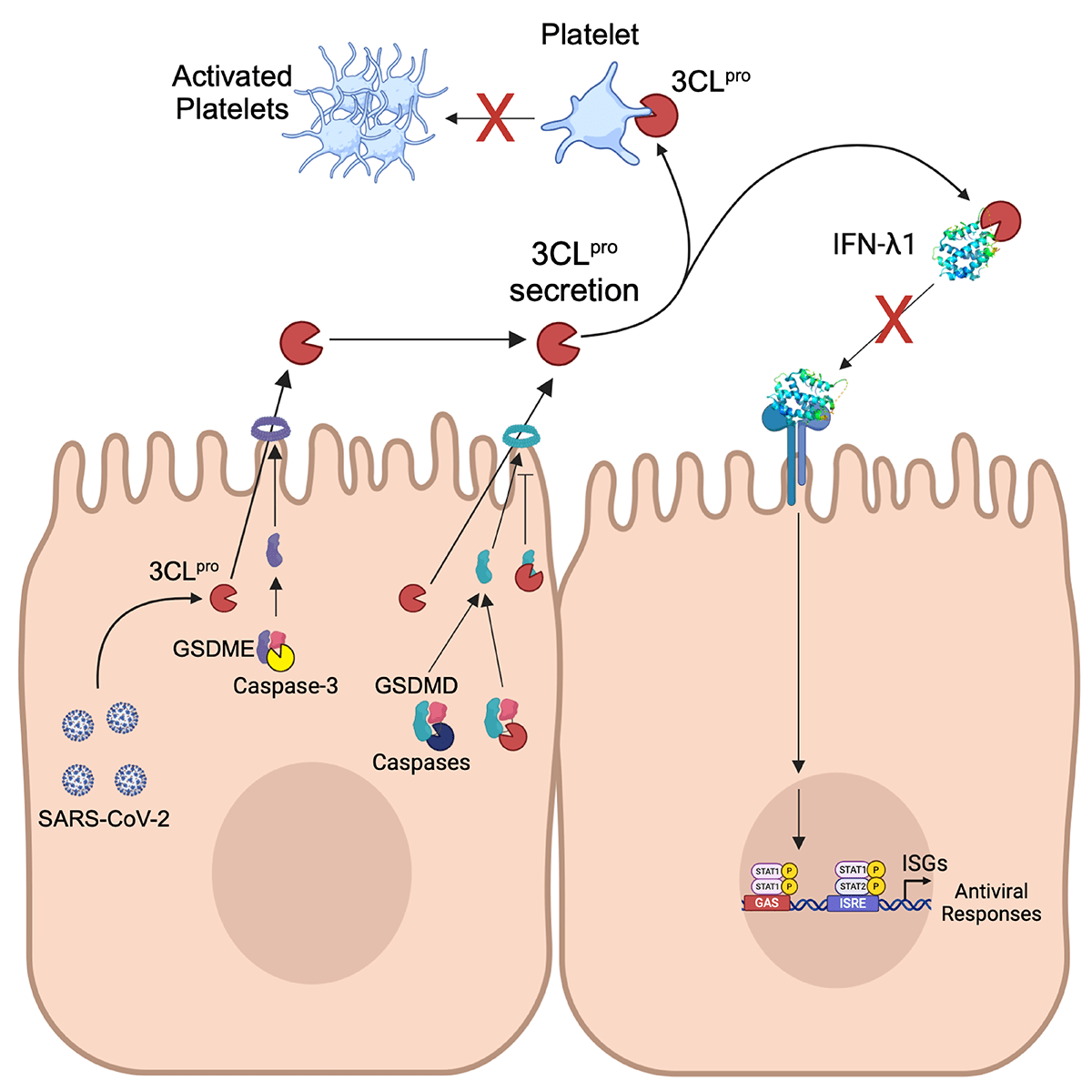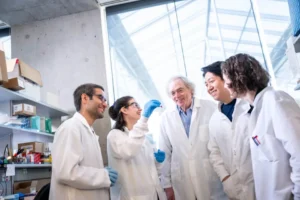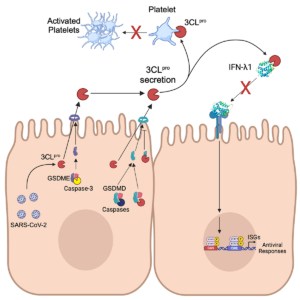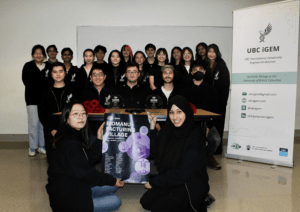Unconventional secretion of the SARS-CoV-2 main protease opens the door for new extracellular biology in viral infection
February 11, 2025

A recent Cell Reports paper by Grin et al. from the Overall Lab presents the first evidence of a viral protease being secreted from infected cells. 3C-like viral proteases (3CL) are utilized by coronaviruses, including severe acute respiratory syndrome coronavirus-2 (SARS-CoV-2), to cleave the viral polyprotein into individual functional proteins necessary for viral replication. In addition to these essential intracellular cleavage events, over 160 intracellular host substrates by the SARS-CoV-2 3CLpro (also known as main protease, Mpro) have been characterised and identified (Pablos et al. 2021, Cell Reports).
The researchers found that 3CLpro is secreted through gasdermin-D (GSDMD) and gasdermin-E (GSDME) pores, which are activated by caspases. These pores are the terminal effectors of pyroptosis - a form of cell death that is activated during infection. While these pores form conduits for 3CLpro and viral nucleocapsid protein release from infected cells, excessive pore formation kills the host cell by pyroptosis, inhibiting 3CLpro expression and secretion. To this end, 3CLpro performs a delicate balance: it regulates its own secretion through GSDMD pores by:
- It cleaves GSDMD at LH270ΓåôN to activate pore formation, promoting its release.
- Subsequently, it cleaves at LQ29ΓåôS and LQ193ΓåôG to inhibit further pore formation, preventing excessive cell death.
By balancing the levels of pore formation to release 3CLpro but still maintain cell function by preventing pyroptosis, selected host and viral proteins are secreted by GSDMD and also GSDME pores.
Extracellular Functions of 3CLpro
Beyond its intracellular roles, 3CLpro exerts distinct functions in the extracellular environment. Researchers identified and characterized two inactivating cleavages in IFN-l1 by 3CLpro using amino terminal-oriented mass spectrometry. Such inactivation of IFN-l1 is hypothesized to be an immune escape mechanism for SARS-CoV-2.
Additionally, 3CLpro retained ~70% of its activity when incubated in human serum that contains high levels of endogenous protease inhibitors. 3CLpro also inhibited platelet activation and aggregation in response to the platelet agonist thrombin.
Implications
These newly described extracellular functions of 3CLpro may promote the spread of SARS-CoV-2 infection to distal tissues, such as the brain, liver, kidneys, and heart.
Furthermore, this discovery of the regulated secretion of a viral protease with extracellular activity opens the door for future studies to investigate whether release of viral proteases from infected cells occurs with other coronaviruses or diverse virus families.
Source Publication: Grin, P. M., Baid, K., de Jesus, H. C., Kozarac, N., Bell, P. A., Jiang, S. Z., Kappelhoff, R., Butler, G.S., Leborgne, N.G.F., Pan, C., Pablos, I., Machado, Y., Vederas, J.C., Kim, H., Benarafa, C., Banerjee, A., & Overall, C. M. (2024). SARS-CoV-2 3CLpro (main protease) regulates caspase activation of gasdermin-D/E pores leading to secretion and extracellular activity of 3CLpro. Cell Reports, 43(12).
Latest News

Building an Inclusive TA Training Program in the Life Sciences
August 25, 2025

LSI researchers awarded funding in Spring 2025 CIHR project grant competition
July 21, 2025

Jayachandran Kizhakkedathu awarded New Frontiers in Research Fund – Exploration Grant
July 14, 2025

LSI researchers awarded funding through NSERC grants
July 11, 2025

Dr. Ivan Robert Nabi awarded Distinguished Achievement award by the UBC Faculty of Medicine
June 24, 2025

Dr. Douglas Allan Receives Co-Funded Grant from Alzheimer Society and Brain Canada
June 20, 2025

LSI Researchers Receive National Recognition for Stem Cell Innovation
June 20, 2025

Dr. Mark Cembrowski awarded over $4.8 million to advance neuroscience research
June 18, 2025

Dr. Pieter Cullis profiled by CIHR for pioneering work in drug delivery and mRNA vaccines
May 29, 2025

LSI PIs Sarah Hedtrich and Arun John Peter named Canada Research Chairs
March 28, 2025

Dr. Emilia Lim Named Dr. Victor Ling Terry Fox New Investigator
February 27, 2025

Unconventional secretion of the SARS-CoV-2 main protease opens the door for new extracellular biology in viral infection
February 11, 2025

LSI researchers awarded funding in Fall 2024 CIHR Project Grant competition
January 30, 2025

UBC evolutionary ecologist and LSI PI, Dr. Kayla King, awarded Arthur B. McDonald fellowship
November 21, 2024

UBC iGEM Team Wins Top Awards for Novel DNA-Based Data Storage Platform
November 13, 2024